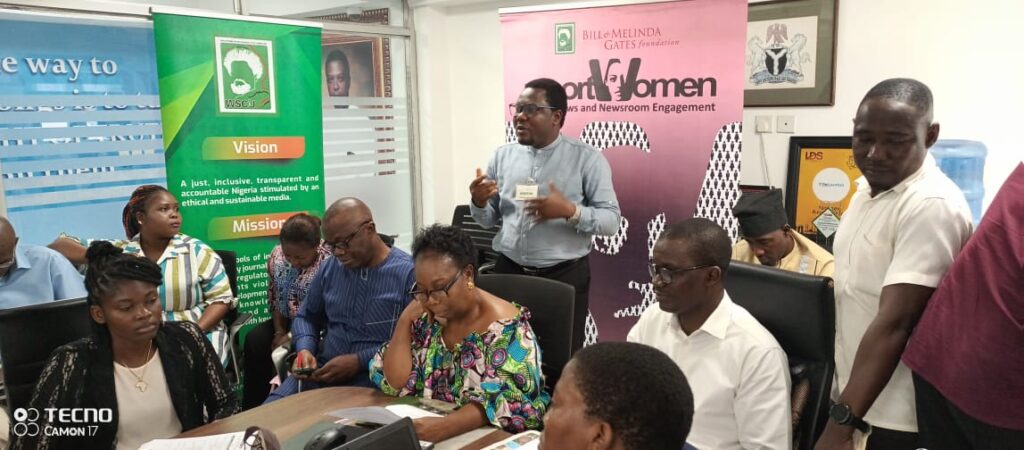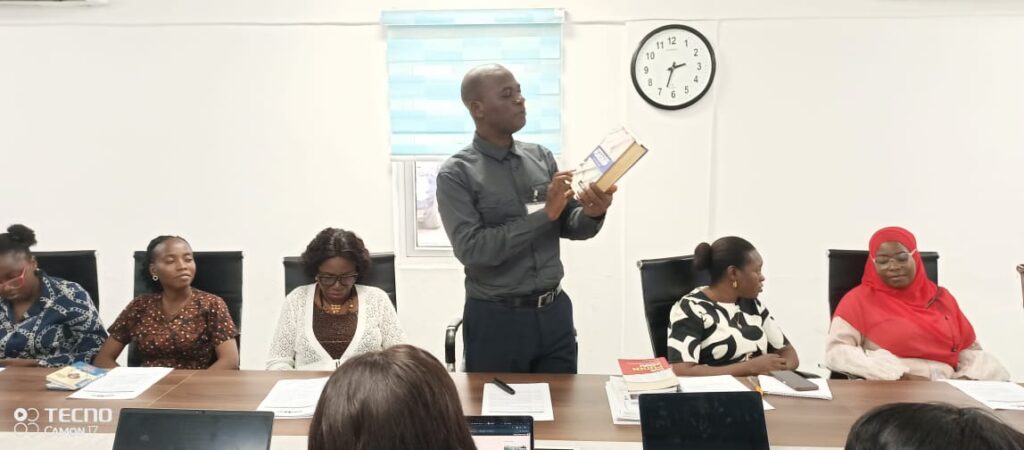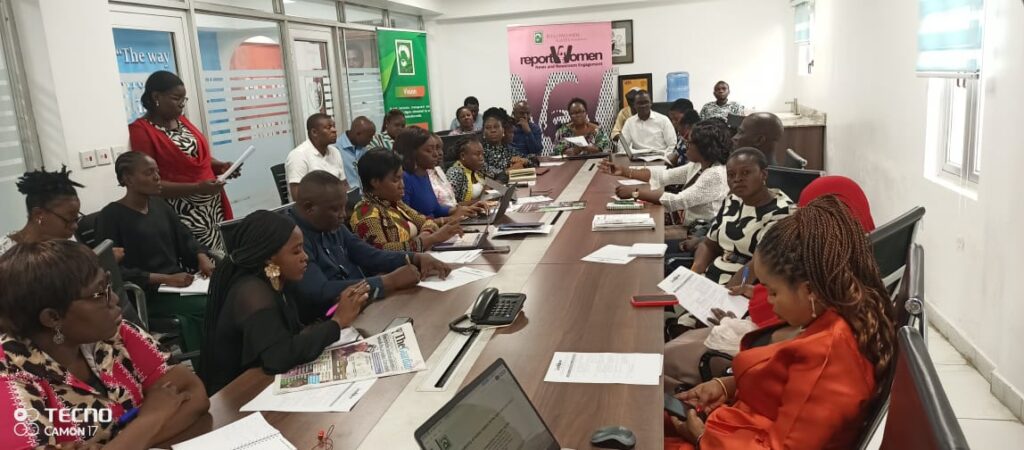In continuation of its efforts to improve on gender representation of women in the leadership in newsrooms, the Wole Soyinka Centre for Investigative Journalism (WSCIJ) recently convened a house-to-house engagement at The Guardian Newspaper at its Lagos Headquarters.
The event, tagged ReportWomen: News and Newsroom Engagement, brought together media professionals and experts to discuss the parity between men and women in the leadership of newsrooms and news.

Director of the Institute of Continuing Education at the University of Lagos, Professor Abigail Ogwezzy-Ndisika, set the tone for the discussion, emphasising the importance of diversity and representation in news and the newsroom.
“A country that’s not engendered is endangered,” she stated, highlighting the need for women’s skilled perception in leadership positions to shape topics and influence outcomes.
Executive Director/CEO of the Wole Soyinka Centre for investigative journalism (WSCIJ), Motunrayo Alaka, presented statistics on the gender gap in newsroom leadership, revealing significant disparities between men and women in management and board positions across Nigeria’s print houses. The data showed varying percentages of women in leadership roles across different geopolitical zones, underscoring the need for urgent action.
Director of News and Editor-in-Chief at TVC Communications, Stella Din-Jacob, observed that while more women have entered hardcore news in the last 15-20 years, they must be supported to reach leadership positions. “We need to harness their potential,” she stressed.
Executive Director, Media Career Development Network (MCDN), Lekan Otufodunrin, advised women to leverage mentorship, social media, and career development to advance. He provided actionable tips on prioritiscing leadership, including setting a career mission, using social media professionally, and maintaining a positive mindset.

Editor at The Guardian Newspaper, Femi Adekoya, pledged to address the gender gap, he stated, “as a socially responsible organisation, we’re committed to closing the gap and achieving parity between men and women in leadership positions.”
Programme Officer at WSCIJ, Samson Ademola, also noted, “Women are best positioned to tell stories about women. Let’s empower them to lead and make a difference.”
The event culminated in a call to action, encouraging women to assume leadership roles and shape the media narrative, while all participants at the event pledged to work towards achieving parity in newsroom leadership, recognising its vital role in creating a comprehensive and current media effect.


